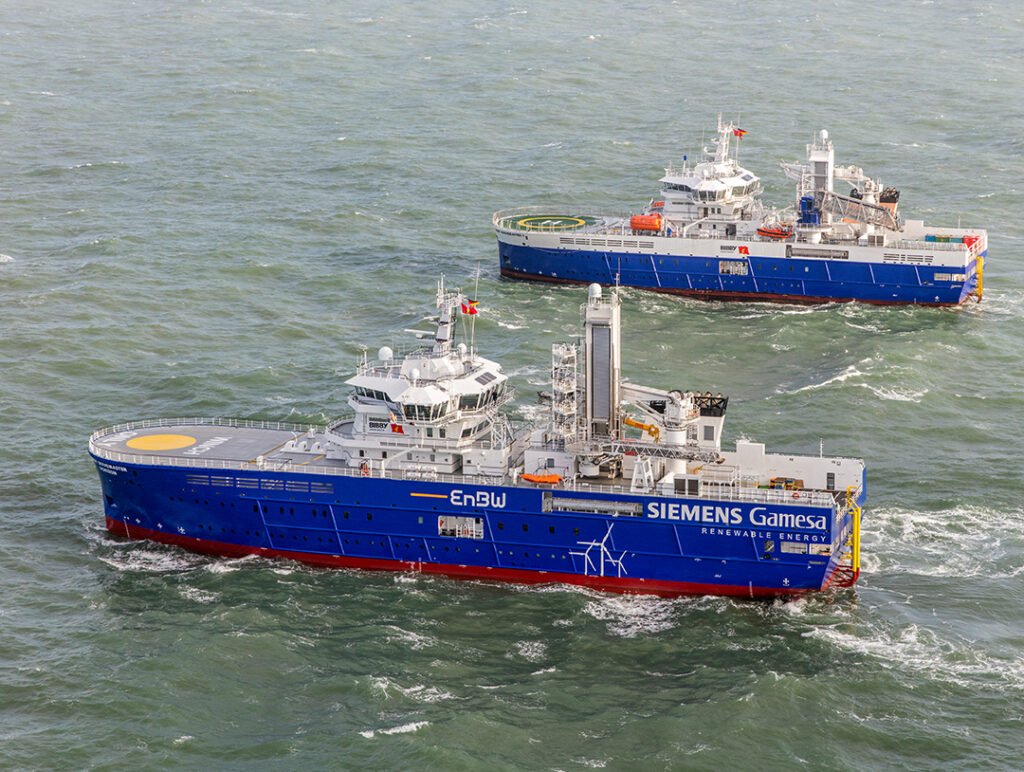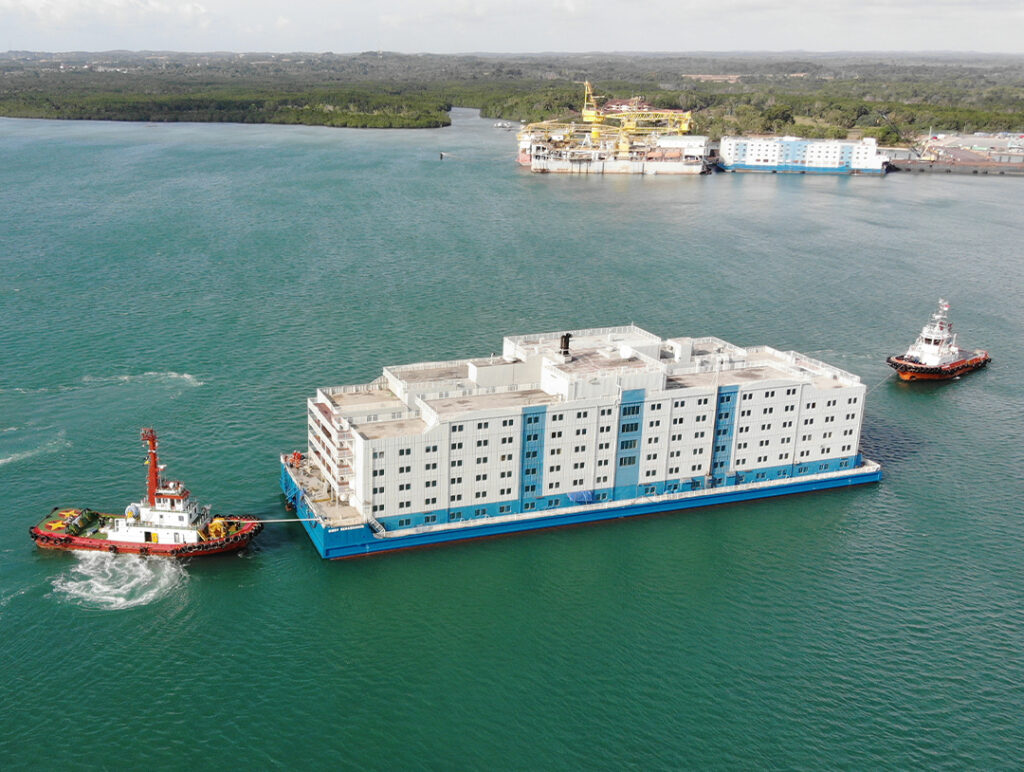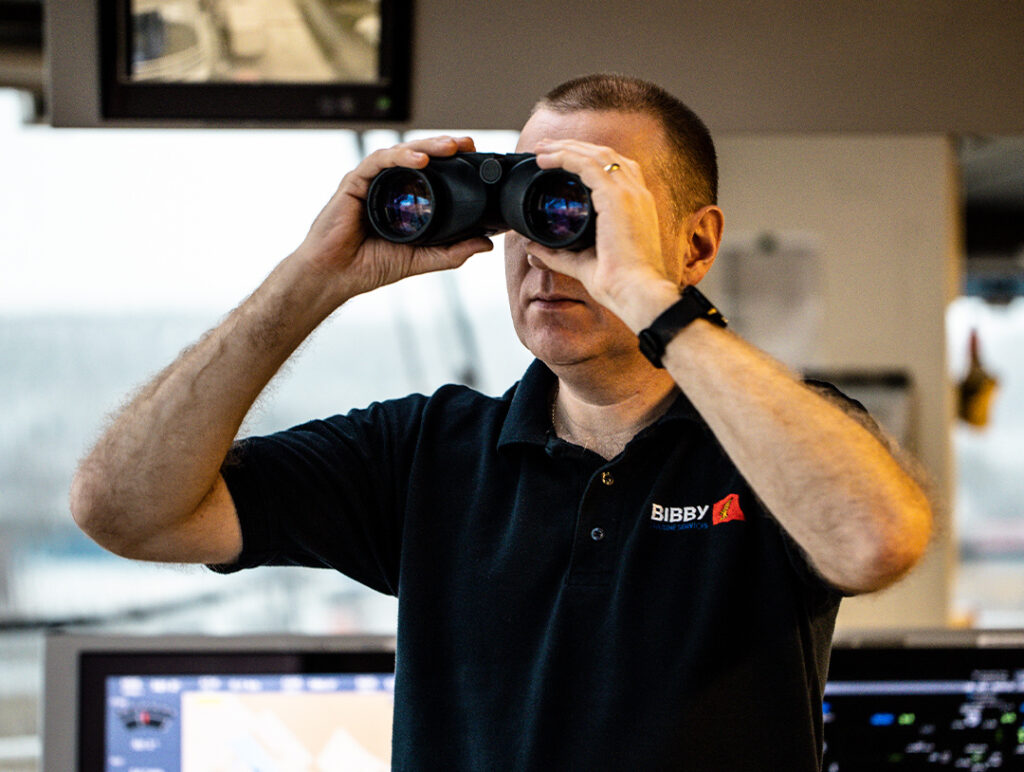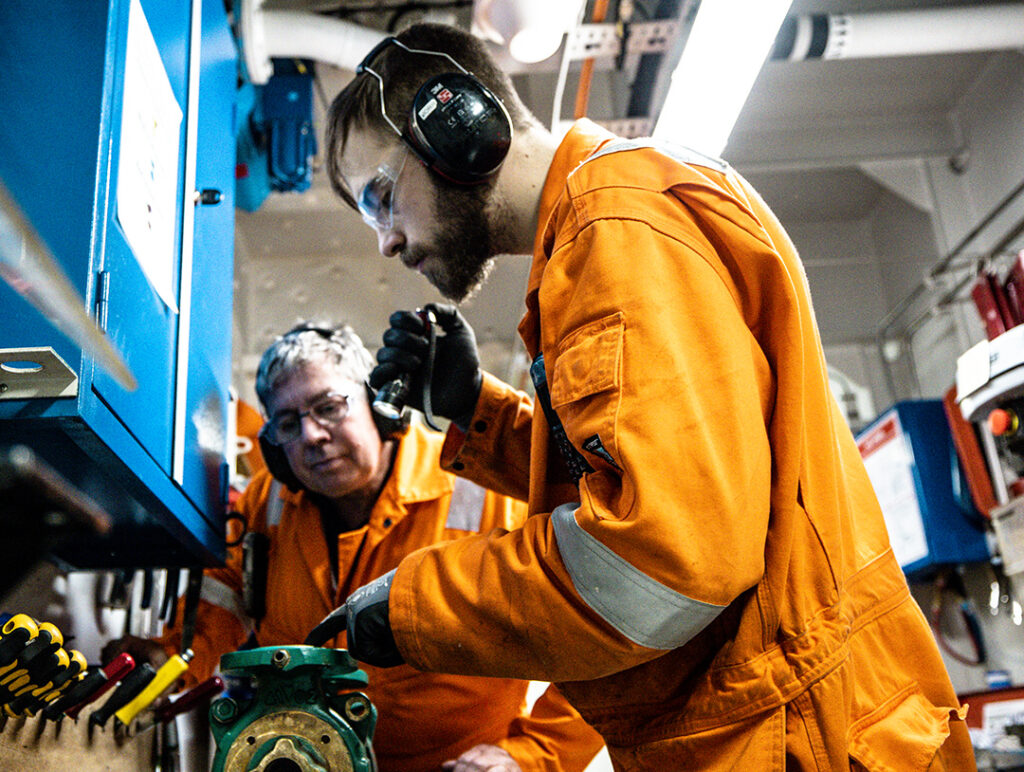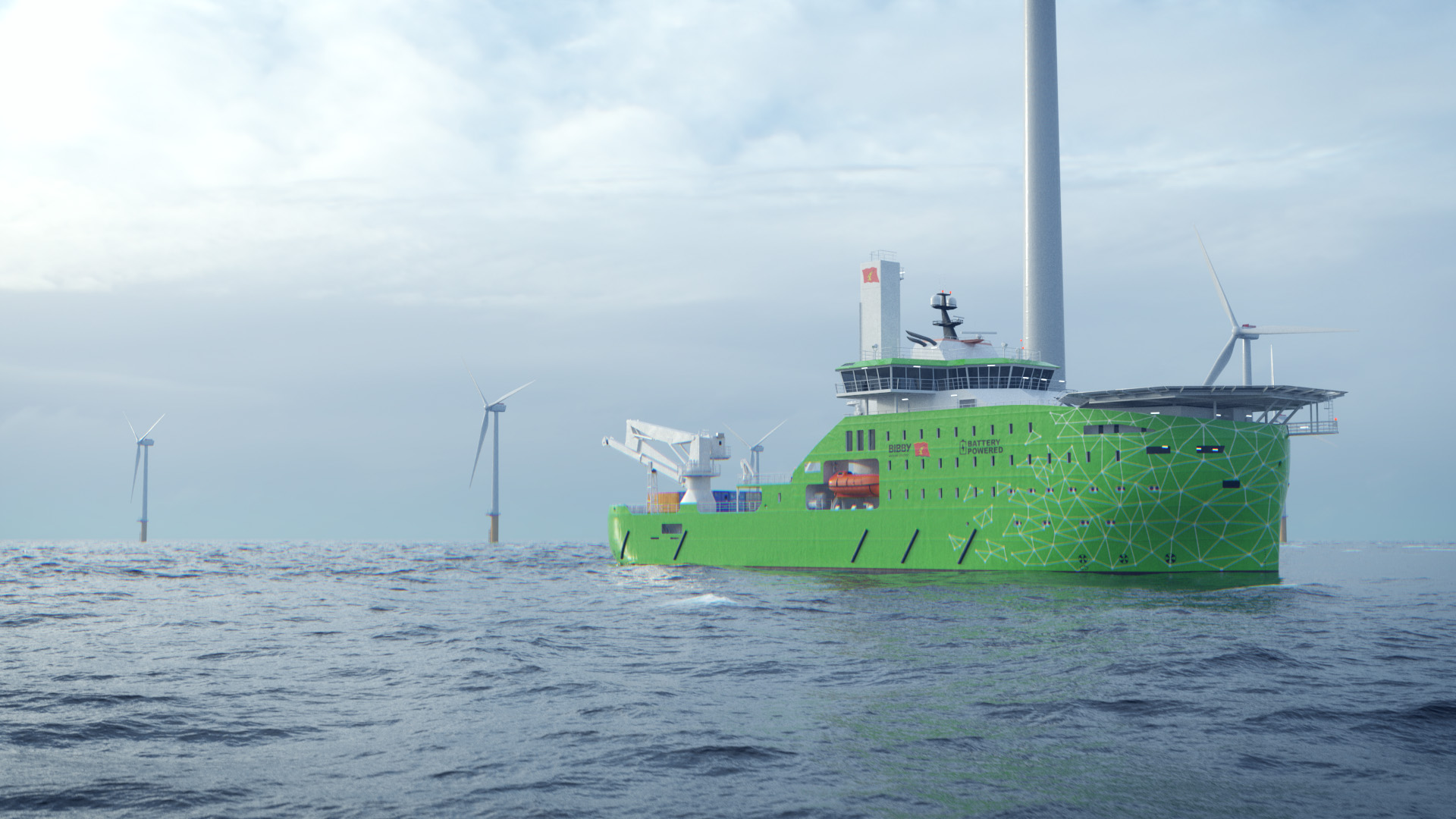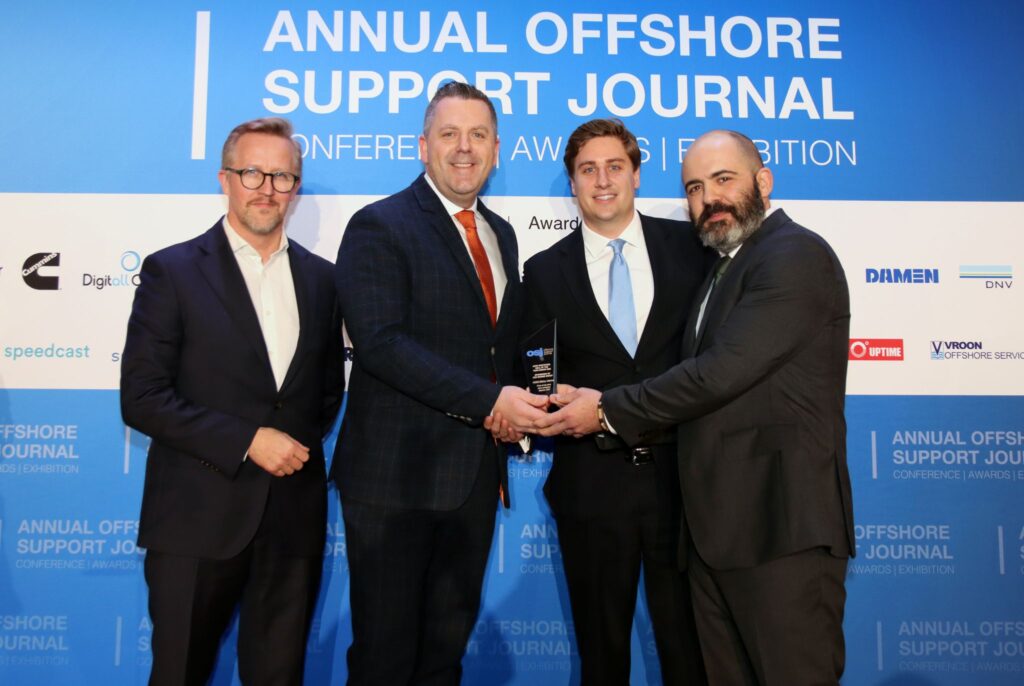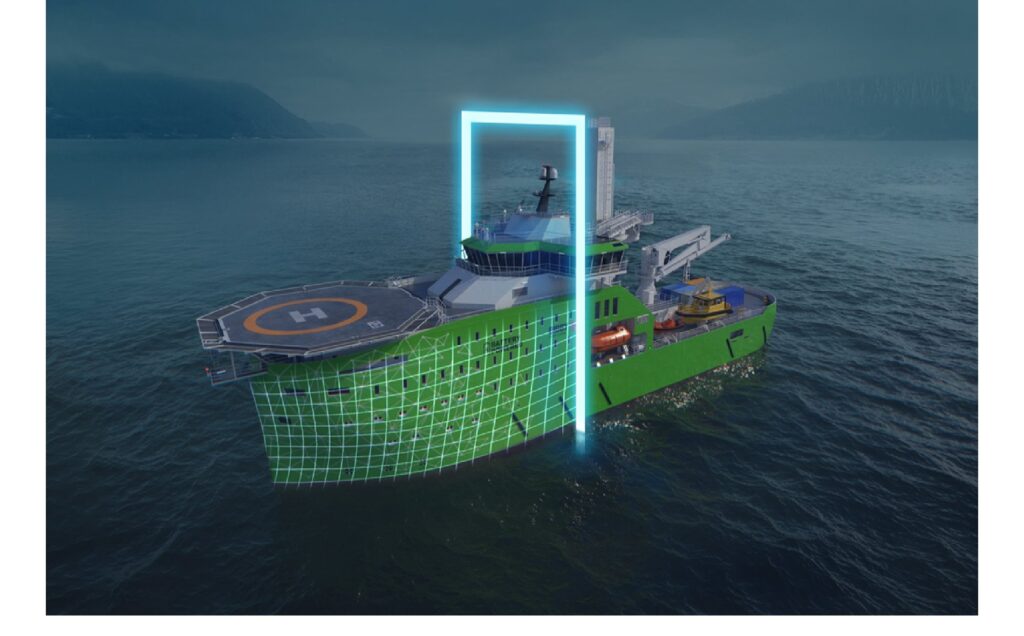As part of London International Shipping Week 2025, Bibby Marine’s Project Delivery Manager, Ewan McMillan, took part in a panel discussion hosted by Norton Rose Fulbright. The event brought together stakeholders from across offshore wind, maritime, finance and legal to explore how the sector can scale sustainably – and what’s needed to support its future infrastructure needs.
The discussion covered the pace of global offshore wind development, vessel availability and electrification, supply chain resilience and the growing importance of grid and port readiness in enabling delivery at scale. Vessel demand is increasing in the industry, and it was highlighted that often offshore wind projects require more vessels than expected. Growing global demand driven by increasing renewable project developments in Europe and in Asia means now is a good time to bring new vessel technologies to market.
The panel highlighted the importance of proactive infrastructure investment and early-stage collaboration between developers, operators, ports, and OEMs. As the UK continues to lead on offshore wind capacity, the consensus was that infrastructure – from vessels to energy systems – must evolve rapidly to match the ambition. The current economic climate means the industry is faced with rising costs. As new vessel technologies are developed, they need to be cost competitive as they deliver other fundamentals, such as reliability, efficiency and electrification.
Representing Bibby Marine, Ewan McMillan said: “Driving down the cost of wind farm development, by reducing energy consumption and cutting emissions, is an existential challenge for our sector. It is a challenge of unparalleled complexity, requiring revolutionary change.” He also shared insight on Bibby Marine’s delivery of the world’s first zero-emission eCSOV, a hybrid-electric commissioning service operation vessel equipped with a 25MW battery and methanol dual-fuel system – now under construction and set for delivery in 2027.
Speaking about the importance of taking initiative to drive progress, McMillan noted that “we’ve decided to go first” in addressing the market’s long-term needs, even as infrastructure and regulation continue to evolve. He explained that Bibby’s vessel will be cost competitive on both CAPEX and OPEX, especially as the fleet expands, and that it has been designed to align with future expectations around sustainability, safety and operating efficiency.
The panel discussion highlighted areas that are crucial to maintaining industry momentum and managing project costs. Grid connection delays were described as “the new consent” reflecting the increasing challenge of integrating new projects into national energy systems. As well as vessel availability, stable regulatory frameworks were identified as crucial in an environment where political consensus over renewable energy’s important is breaking down – legal clarity is needed to support the rollout of offshore charging infrastructure and clean marine fuels in Europe.
As the industry continues to expand, conversations like this are critical to surfacing shared challenges and driving alignment across stakeholder groups. Bibby Marine was proud to contribute to this dialogue and will continue to play an active role in shaping a clean, collaborative future for offshore wind operations.
To learn more about Bibby Marine’s clean energy vision and its zero-emission eCSOV project, visit here.
